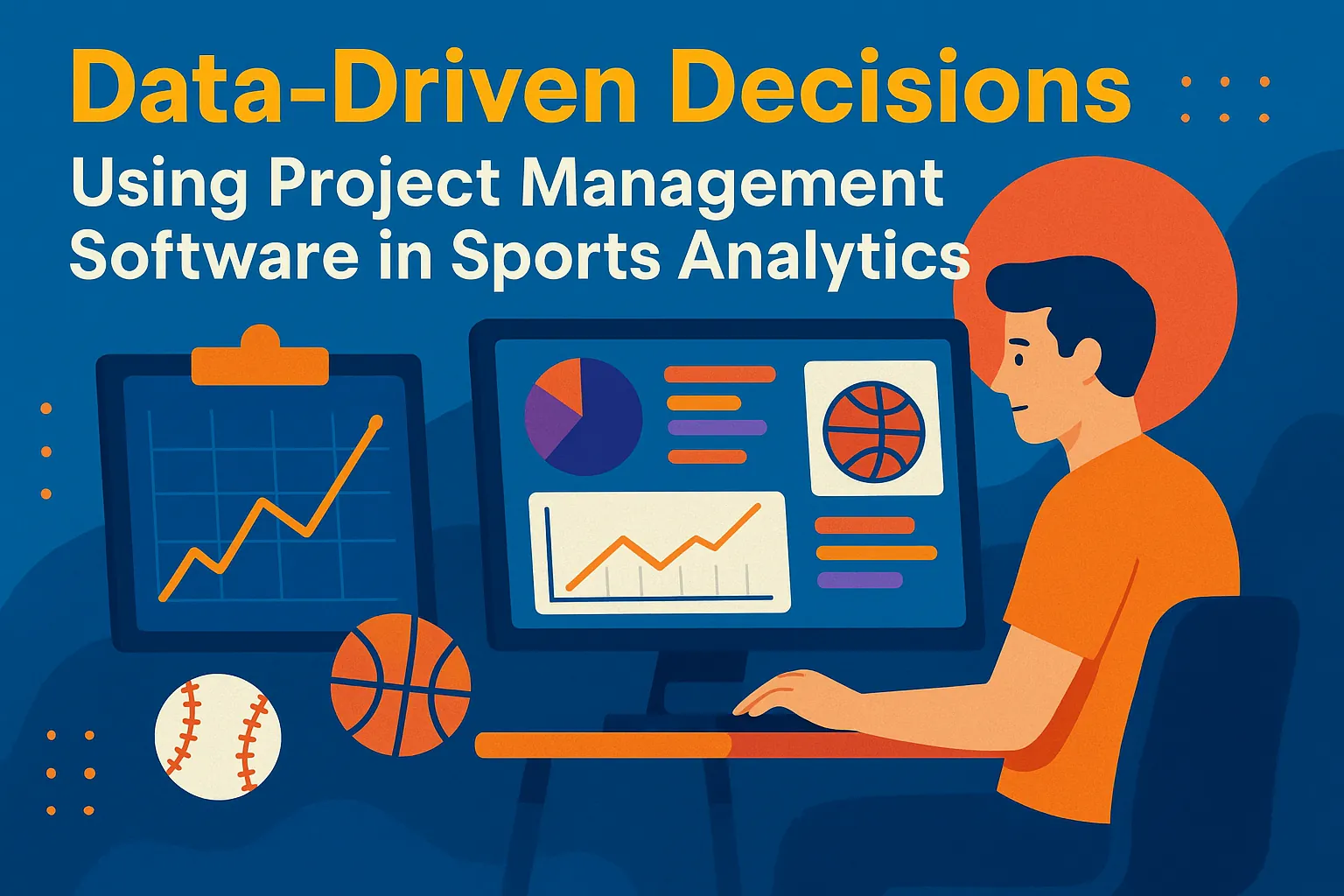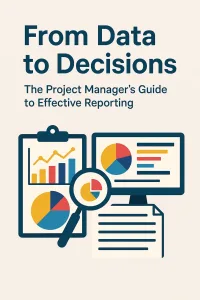Introduction
Project management plays a pivotal role in orchestrating various elements that contribute to an athlete’s performance and a team’s success. Project management in sports refers to the systematic planning, execution, and monitoring of projects that aim to enhance athletic performance, improve team strategies, and optimize operational efficiency. This involves coordinating multiple stakeholders, including coaches, athletes, data analysts, and management teams, to ensure that objectives are met within specified timelines and budgets.
Data analytics has emerged as a transformative force in sports, enabling teams to make informed decisions based on empirical evidence rather than intuition alone. By analyzing performance metrics, player statistics, and game strategies, data analytics provides insights that can significantly enhance sports performance. For instance, teams can identify strengths and weaknesses, tailor training programs, and develop game plans that maximize their chances of success. The integration of data analytics into sports not only improves individual and team performance but also enhances fan engagement and operational efficiency.
To effectively harness the power of data analytics, sports organizations increasingly rely on project management software. These tools facilitate the organization, tracking, and analysis of vast amounts of data, allowing data analysts to focus on deriving actionable insights rather than getting bogged down by administrative tasks. Project management software streamlines communication among team members, ensures that deadlines are met, and provides a centralized platform for data storage and analysis. By leveraging these tools, sports organizations can make data-driven decisions that lead to improved performance outcomes and strategic advantages in a highly competitive environment.
The Intersection of Project Management and Sports Analytics
The integration of project management principles is crucial for optimizing performance and achieving strategic goals. As data-driven decisions become increasingly vital in sports, the structured processes provided by project management tools can significantly enhance the effectiveness of analytics initiatives. Here are some key points to consider:
- Importance of Structured Processes: Structured processes in sports analytics ensure that data is collected, analyzed, and utilized effectively. By implementing a systematic approach, teams can streamline their workflows, minimize errors, and enhance the quality of insights derived from data. This structured methodology allows for better tracking of progress and outcomes, which is essential in a fast-paced sports environment where decisions must be made quickly and accurately [1].
- Adapting Project Management Methodologies: Project management methodologies such as Agile and Scrum can be effectively adapted for sports data projects. Agile methodologies promote flexibility and iterative progress, which are beneficial in the dynamic world of sports where conditions can change rapidly. Scrum, with its focus on short sprints and regular feedback loops, allows teams to quickly pivot based on new data or insights, ensuring that analytics efforts remain relevant and impactful [2]. These methodologies foster an environment where continuous improvement is prioritized, aligning perfectly with the goals of sports analytics.
- Collaborative Nature of Sports Analytics: Sports analytics is inherently collaborative, requiring input from various stakeholders, including data analysts, coaches, and management. The need for cross-functional teams is paramount, as diverse perspectives contribute to a more comprehensive understanding of data. Project management tools facilitate this collaboration by providing platforms for communication, task management, and progress tracking. By breaking down silos and encouraging teamwork, project management principles help ensure that all team members are aligned and working towards common objectives [3].
Key Features of Project Management Software for Sports Analytics
Project management software plays a crucial role in enhancing the efficiency and effectiveness of data-driven decision-making. For data analysts and sports management professionals, leveraging these tools can significantly streamline processes and improve outcomes. Here are some essential features of project management software that benefit sports analysts:
- Task Management and Tracking: Effective project management software provides robust task management capabilities, allowing teams to break down data analysis projects into manageable tasks. This feature enables analysts to assign responsibilities, set deadlines, and monitor progress, ensuring that projects stay on track and are completed efficiently. By tracking individual contributions, teams can maintain accountability and enhance productivity [1].
- Integration with Data Visualization Tools and Databases: A key advantage of project management software is its ability to integrate seamlessly with data visualization tools like Tableau. This integration allows analysts to easily access and manipulate data, transforming raw statistics into insightful visual representations. Additionally, connecting with various databases ensures that analysts have real-time access to the most current data, facilitating timely and informed decision-making [2][3].
- Collaboration Features: Collaboration is vital in sports analytics, where insights and reports need to be shared among team members and stakeholders. Project management software often includes features such as shared workspaces, comment sections, and file-sharing capabilities. These tools foster communication and collaboration, enabling teams to discuss findings, share insights, and collectively strategize based on data analysis [4][8].
- Customizable Dashboards for Real-Time Analytics Monitoring: Customizable dashboards are a powerful feature of project management software, allowing analysts to create tailored views that highlight key performance indicators and metrics relevant to their projects. These dashboards provide real-time monitoring of analytics, enabling teams to quickly assess performance and make data-driven adjustments as needed. This feature enhances the ability to respond to changing conditions and optimize strategies effectively [5][10].
Case Studies: Success Stories of Project Management in Sports Analytics
The integration of project management software with data analytics has proven to be transformative. Professional sports teams are increasingly leveraging these tools to enhance their decision-making processes, optimize player performance, and develop strategic game plans. Here are some notable examples that illustrate the successful application of project management in sports analytics.
1. Liverpool FC: Enhancing Player Performance
Liverpool FC has embraced data-driven project management to refine their training methodologies and player performance metrics. By utilizing project management software, the club can effectively track player statistics, monitor training loads, and analyze performance data in real-time. This systematic approach has led to:
- Improved Player Performance: The club’s analytics team can identify areas for improvement and tailor training sessions accordingly, resulting in enhanced on-field performance [3].
- Injury Prevention: By closely monitoring player workloads and recovery times, Liverpool has successfully reduced the incidence of injuries, allowing players to maintain peak performance throughout the season [4].
2. Manchester City: Strategic Game Planning
Manchester City has also harnessed the power of project management tools to inform their strategic game planning. The club employs sophisticated analytics to evaluate opponent strategies and player dynamics, which is facilitated by project management software that organizes and visualizes data effectively. The outcomes include:
- Data-Driven Decisions: The coaching staff can make informed tactical adjustments based on comprehensive data analysis, leading to more effective game strategies [3].
- Enhanced Team Coordination: Project management tools help streamline communication among coaching staff, analysts, and players, ensuring that everyone is aligned with the game plan [6].
3. Brentford FC: Economic Impact through Data Analysis
Brentford FC has made significant strides in utilizing project management software to analyze player performance and team dynamics. Their approach has not only improved athletic outcomes but also had a positive economic impact on the club. Key results include:
- Optimized Resource Allocation: By analyzing data on player performance and potential, Brentford can make strategic decisions regarding player acquisitions and contracts, maximizing their financial investments [8].
- Performance Improvement: The club’s analytics initiatives have led to measurable improvements in player performance, contributing to their competitive edge in the league [4].
The Role of Project Management Tools
The success stories of these clubs underscore the critical role that project management tools play in achieving positive outcomes in sports analytics. These tools facilitate:
- Data Organization and Visualization: Project management software allows teams to organize vast amounts of data, making it easier to analyze and derive actionable insights [6].
- Collaboration and Communication: Effective project management fosters collaboration among various stakeholders, ensuring that data-driven insights are shared and implemented across the organization [9].
- Strategic Planning and Execution: By integrating analytics into their project management processes, sports teams can develop and execute strategies that are informed by data, leading to improved performance and reduced risks [5].
Challenges in Implementing Project Management Software in Sports Analytics
Implementing project management software in sports analytics can significantly enhance decision-making processes and operational efficiency. However, sports management professionals often encounter several challenges that can hinder the effective adoption and utilization of these tools. Below are some key obstacles and considerations:
1. Resistance to Change and Cultural Shift
- Cultural Barriers: One of the most significant challenges is the resistance to change within organizations. Many teams and staff members may be accustomed to traditional methods of data handling and decision-making, making it difficult to embrace new technologies and processes. This resistance can stem from a fear of the unknown or a lack of understanding of the benefits that project management software can bring [2][7].
- Need for a Cultural Shift: For successful implementation, a cultural shift is necessary. This involves fostering an environment that encourages innovation and adaptability. Leadership must actively promote the advantages of data-driven decision-making and demonstrate how project management tools can streamline operations and improve outcomes [1][8].
2. Common Pitfalls in Software Adoption and Usage
- Data Quality and Availability: A frequent pitfall in adopting project management software is the issue of data quality and availability. If the data being inputted into the system is inaccurate or incomplete, it can lead to misguided decisions and undermine the software’s effectiveness [2][7].
- Lack of Standardization: Without standardized processes for data collection and analysis, the software may not be utilized to its full potential. This can result in inconsistent data outputs and hinder collaboration among team members [3][4].
- Budget Constraints: Financial limitations can also pose a challenge. Organizations may struggle to allocate sufficient resources for software acquisition, training, and ongoing support, which can lead to underutilization of the tools [2][7].
3. Strategies for Overcoming Challenges
- Comprehensive Training Programs: To address resistance and ensure effective usage, organizations should invest in comprehensive training programs. These programs should not only cover the technical aspects of the software but also emphasize its strategic benefits in sports analytics [5][6].
- Ongoing Support and Resources: Providing ongoing support is crucial for maintaining user engagement and addressing any issues that arise post-implementation. This can include dedicated help desks, user forums, and regular check-ins to assess the software’s impact and gather feedback [5][6].
- Encouraging Collaboration: Promoting a collaborative approach to data analytics can help mitigate resistance. By involving team members in the decision-making process regarding software selection and implementation, organizations can foster a sense of ownership and commitment to the new tools [5][6].
Best Practices for Leveraging Project Management Tools in Sports Analytics
Project management tools play a crucial role in enhancing data-driven decision-making. By implementing effective project management strategies, sports management professionals can optimize their analytics processes and improve overall performance. Here are some actionable recommendations for leveraging these tools effectively:
- Set Clear Objectives and KPIs: Establishing well-defined objectives and key performance indicators (KPIs) is essential for guiding data projects. This clarity helps teams focus on what matters most and measure success accurately. By aligning analytics efforts with strategic goals, organizations can ensure that their data initiatives contribute meaningfully to performance outcomes [2][4].
- Regular Team Meetings and Updates: Consistent communication is vital in any project management framework. Scheduling regular team meetings allows for updates on progress, sharing insights, and addressing challenges. This practice fosters collaboration and ensures that all team members are aligned with the project’s objectives and timelines. It also provides an opportunity to reassess priorities and make necessary adjustments based on the latest data findings [2][4].
- Implement Feedback Loops and Continuous Improvement: Incorporating feedback mechanisms into the analytics process is crucial for fostering a culture of continuous improvement. By regularly soliciting input from team members and stakeholders, organizations can identify areas for enhancement and adapt their strategies accordingly. This iterative approach not only improves the quality of data analysis but also encourages innovation and responsiveness to changing conditions in the sports landscape [2][4][9].
By following these best practices, sports management professionals can effectively utilize project management tools to enhance their data analytics capabilities, leading to more informed decision-making and improved performance outcomes in their organizations.
Future Trends: The Evolution of Project Management in Sports Analytics
The integration of project management tools in sports analytics is poised for significant evolution, driven by advancements in technology and changing dynamics within the sports industry. Here are some key trends that are likely to shape the future of project management in this field:
- Impact of AI and Machine Learning: Artificial Intelligence (AI) and machine learning are revolutionizing data analysis processes in sports. These technologies enable the analysis of vast amounts of data with greater accuracy and efficiency, allowing teams to make more informed decisions. AI can enhance predictive modeling, which is crucial for player performance predictions and game strategy development. As these technologies become more sophisticated, project management tools will need to adapt to incorporate AI-driven insights, enabling data analysts to leverage predictive analytics more effectively in their workflows [1][2].
- Evolution of Project Management Software: The future of project management software in sports analytics will likely see the incorporation of advanced analytics features. This evolution will facilitate real-time data visualization and reporting, allowing teams to track performance metrics and project progress seamlessly. Enhanced collaboration features will also be essential, enabling data analysts to share insights and updates quickly. As the market for AI-based software grows, project management tools will increasingly integrate these capabilities to support data-driven decision-making processes [5][8].
- Role of Remote Collaboration Tools: The rise of remote work has transformed how sports analytics teams operate. Future project management in this domain will heavily rely on remote collaboration tools that enable teams to work together effectively, regardless of their physical location. These tools will support communication, file sharing, and project tracking, ensuring that all team members are aligned and informed. As sports organizations continue to embrace flexible work arrangements, the demand for robust remote collaboration features in project management software will increase, fostering a more agile and responsive analytics environment [6][9].
Conclusion
The significance of data-driven decisions cannot be overstated. The integration of data analytics into sports management has transformed how teams and organizations approach performance optimization, strategy formulation, and overall decision-making. By leveraging real-time insights and comprehensive data analysis, sports professionals can make informed choices that enhance both athletic performance and business outcomes [2][4].
The benefits of incorporating project management software into sports analytics practices are manifold. These tools facilitate the organization and analysis of vast amounts of data, enabling project managers and analysts to track performance metrics, manage timelines, and collaborate effectively across teams. By streamlining workflows and automating mundane tasks, project management software empowers sports organizations to focus on strategic insights and innovation, ultimately driving better results [1][8].
As the sports industry continues to evolve, it is crucial for data analysts and sports management professionals to embrace these project management tools. By doing so, they can enhance their analytical capabilities, improve team dynamics, and achieve superior performance outcomes. The adoption of project management software is not just a trend; it is a necessary step towards achieving excellence in sports analytics and ensuring that organizations remain competitive in an increasingly data-driven landscape [5][9].
In conclusion, the integration of project management tools into sports analytics is essential for fostering a culture of data-driven decision-making. By leveraging these resources, professionals in the field can unlock new levels of performance and success, ultimately benefiting athletes, teams, and organizations alike.
Find out more about Shaun Stoltz https://www.shaunstoltz.com/about/.
This post was written by an AI and reviewed/edited by a human.



